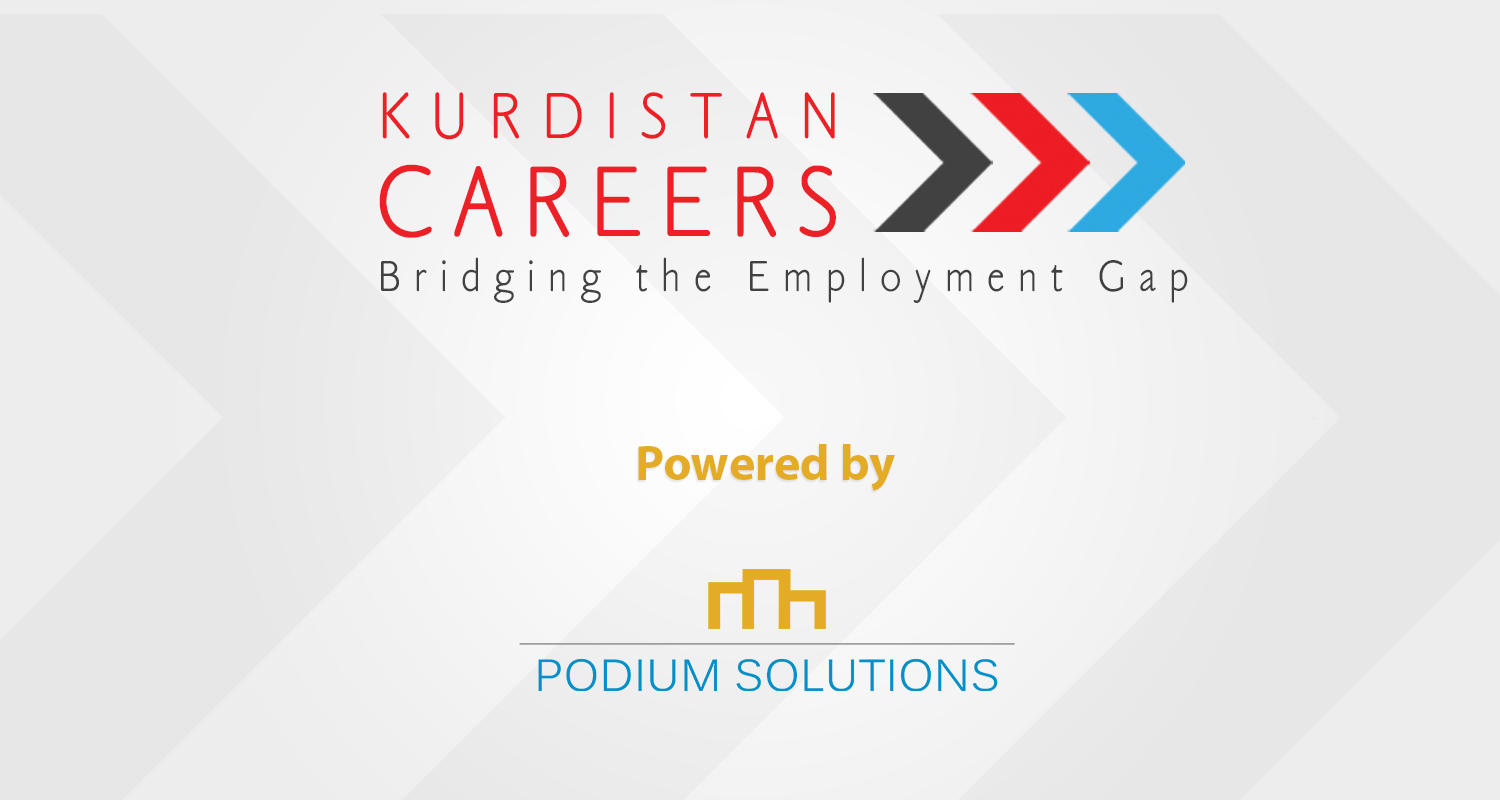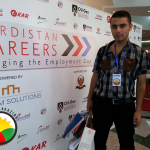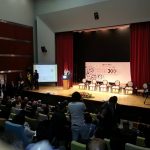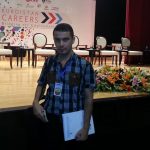In the opening arena of the 2nd Annual Kurdistan Career on September 4, 2013, there was a huge wave of job seekers, estimated around 1000, marching towards the exhibition and the sponsors. Employers keenly explained their company’s requirements and profiles to the job seekers. Nearly 45 national and international companies were present. This fair was a completion and continuation of the 1st Kurdistan Careers Fair which was held last year.
Media agencies were passionately covering the event as the Prime Minister of the Kurdistan Regional Government, Nechirvan Barzani, was present to launch it. Speaking to the press and the audience, the PM started with the English word “Ready” and a smile, which was a kind of joke, to capture the attention of the crowd.
At the beginning of the fair the PM strongly emphasized the importance of such kind of events to better facilitate job opportunities in the private sector as the region is undergoing a gigantic economic boom and the labor market is quite motionless comparing it with the acclaimed industry and energy growth. The Kurdistan Works Website- kw.krg.org– which is an online information portal service was created to broadcast job vacations across the region and dissolve the unemployment issues of the workforce.
The PM several times referred to the significance of the participation of young Kurdish students and said that the government cannot employ all the graduates. He considered the fair as an essential initiative and tool to further boost the economic infrastructure of the KRG. The conference, supported financially and logistically by the KRG, was a joint project between the private and the public sectors aiming at providing a platform to discuss job opportunities and increase cooperation between the two sectors.
The most important purpose of the fair and exhibition was to make private sectors more attractive through engaging and establishing a direct contact between the employees and the employers- employees, in Kurdistan, don’t have the chance to meet their employers in the public sectors as employment in the public sectors mostly depend on degrees and marks not skills, enthusiasm, or willingness.
During the exhibition, I came across many different types of employees searching eagerly to find their destination. One particular employee, accompanied by her parents, was quite ardent about getting a half-time-job as she was a student. Her problem was the employer wanted someone who can speak English, Kurdish, and Arabic. Besides, the translator/interpreter should have known the four dominant Kurdish dialects which are Sorani, Krmanji, Zazaki, and Badini. Born in Hawler, she was quite surprised about the high level of requirements. Technology and the industry are intolerable of amateurish job seekers and the labor market has become a place for battling of skills in today’s complex business world.
The exhibition was dominated by the energy and technology companies. High demand was primarily on engineers, technicians, oils specialists, business administer, accountants, and designers. This fact has to be reconsidered by the high officials of Kurdistan Universities and the policy makers of Ministry of Education and Ministry of Higher Education and Scientific Research. There must be a radical shift from memorizing theoretical material to practical training.
What makes the private sector more attractive is the fact that they offer a better salary. However, there are some shortcomings of the private sector. Companies mostly choose returning Kurdish workers and foreign workers in comparison to local workers and the future of the employee is not secured in terms of retirement and benefits of a piece of land. More work hours is also another concern in the private sectors.
It has become a cultural fixation that most graduates rely on the government for employment and they look at the government as the prime source of employment. What is really imperative for the KRG is to encourage and even force both internal and external companies to employ potential Kurd job seekers and graduates. To recruit more Kurds, Kurdistan universities should prepare capable graduates with analytical and practical expertise and not only giving certificates.
Though the private companies are slowly responding to the growing demands of job seekers, it is a historical dilemma for the countries that are on the transitional road to adapt the populace to the fast growing world of today. The demand and supply balance need to be met through continuous training programs and special courses in the various industry fields. For the betterment of Kurdish society and providing an array of wide-ranging services, collaborative effort between public and private sectors is indispensable.
Several factors, over the past eight years, has driven the international companies to come to Kurdistan to invest and invest big. Rich oil revenues and natural resource elements, vigilant security forces and safety measures situations-comparing it to other parts of Iraq- have made it easier for opening new consulates in Hawler. The giant holdings and companies such as Chevron and ExxonMobil rushed in, in 2005, to the region to explore and extract oil and gas energy, despite the Central Governments’ criticisms on the terms of the contracts. International schools and university investors are continuously coming and opening; new hotels and shopping malls are built in the cities of Hawler, Slemani, and Duhok. Highways and underpasses are apparent, buildings pop up everywhere: these are the most observable features of Kurdistan, nowadays.
Technology is growing fast and has become an inevitable part of life as well as demands for technical instruments such as iPad, iPhone, and other smart transportable devices. Administrative system in Kurdistan and work policy are in dire need to move toward a brighter horizon to meet the global requirements- that is why it is necessary to reach out to other cities to hold these kind of fairs.
In conclusion, the 2nd Annual Kurdistan Careers reflects the heart and mind of the young Kurdish people and their natural talents, flexible personalities and individual strength to bring sustainable improvements to Kurdistan.




